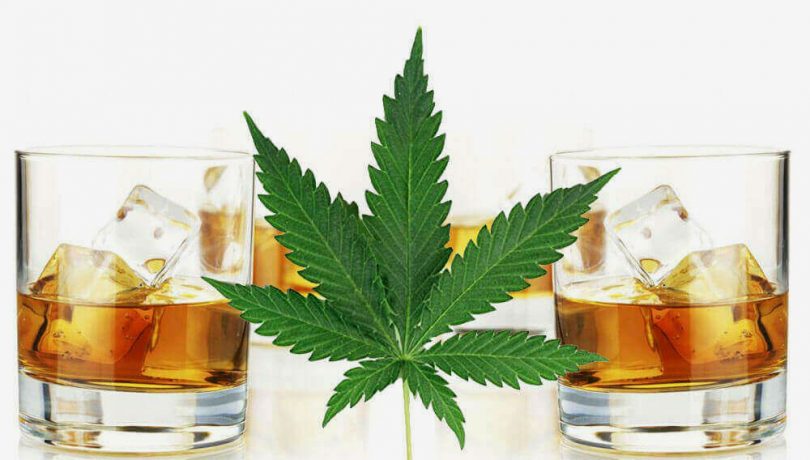Since cannabidiol (CBD) can be effective for many different conditions, its use and popularity continue to grow. That means more people across the US and the world are integrating CBD into their daily routine. But how does CBD use affect other aspects of that routine?
After a long day, many find happy hour at a bar or enjoying a cocktail at home a nice way to unwind. And while you enjoy that cold beverage, you likely forgot that CBD is also in your system, mixing and mingling with alcohol in your blood.
CBD is considered to be a relatively safe substance–but it is a bioactive compound nonetheless and exerts physiological effects on the body and brain. Since alcohol is a legal substance, scientists know a lot more about how it gets broken down in the body. And while we do know a bit about CBD physiology, there are still many unknowns when it comes to how CBD interacts with other substances like alcohol.
In 1979 (yes, CBD did exist then!), a small clinical study evaluated the effects of giving 10 healthy people orange juice with CBD (200 mg), alcohol (1 g/kg), both, and an inactive substance called a placebo (in this case, just orange juice)[1]. Since everyone in the study received all treatments, researchers waited a week between each test. They found that people given CBD and alcohol had lower levels of blood alcohol compared to those who only consumed alcohol. While this was a very small study, it suggests that CBD may be lessening the physiological effects of alcohol in some way.
A more recent analysis summarized data from several studies conducted on the effects of CBD on alcohol consumption[2]. This review concluded that CBD reduces alcohol consumption based on pre-clinical studies. CBD also was found to show promise in reducing liver inflammation and brain damage caused by alcohol consumption.
Since CBD affects a wide range of receptors in the body and brain, it is difficult to identify a single mechanism that might explain these effects. Additionally, it is very important to keep in mind that the large majority of these studies were conducted in rodents, not humans.
If you are thinking that combining CBD with alcohol may bring you benefits, this research suggests that we don’t have enough data to substantiate that claim–especially since much of these studies focused on using CBD to exert effects on damage already caused by alcohol, which is very different from studying a combination of the two.
However, it might be interesting to evaluate your own behavior in the context of alcohol. If you are a regular drinker (who is not dependent on alcohol), has CBD use affected your level of alcohol consumption?
While this question remains unanswered on a global scale, remember to always be safe when consuming CBD by choosing reliable sources and to drink in a responsible manner. And, as always, be sure to speak to your doctor about your CBD use.
[Image]
References
- Consroe, P., et al. “Interaction of Cannabidiol and Alcohol in Humans.” Psychopharmacology. vol.66, no.1, 1979, pp. 45-50.
- De Ternay, J., et al. “Therapeutic Prospects of Cannabidiol for Alcohol Use Disorder and Alcohol-Related Damages on the Liver and the Brain.” Front Pharmacol, vol.10, 2019, pp. 1-11.










